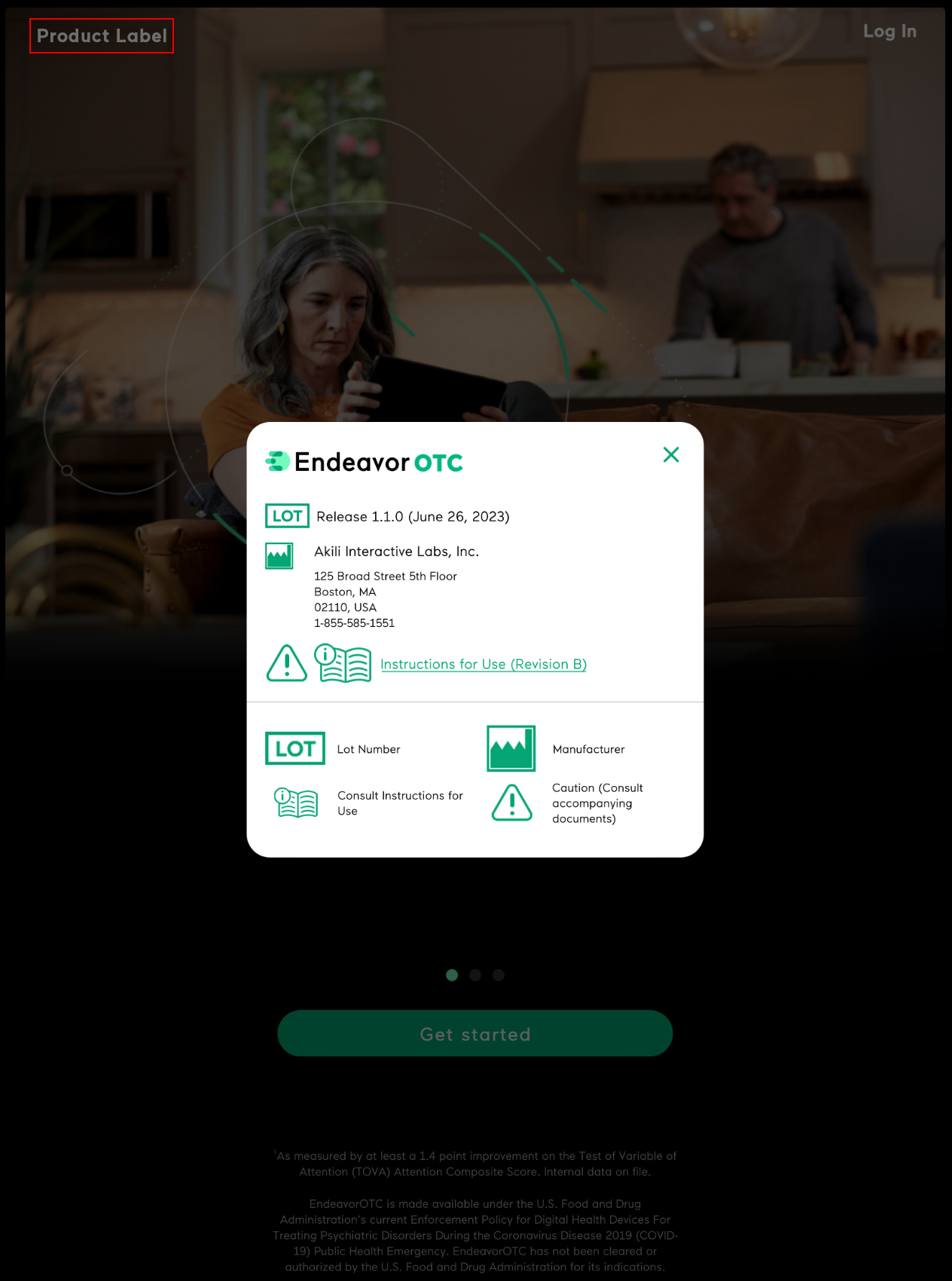Tips for Improving Focus and Concentration for ADHD

One effective strategy for improving focus and concentration for ADHD involves shaping your environment to match with your strengths.
However, this isn’t always possible, and so at other times it can be helpful to implement strategies to improve your concentration and focus to allow you to excel in any environment. These strategies can involve cognitive treatments like those found in EndeavorOTC in addition to creating and using effective organizational structures, addressing distracting thoughts, and leveraging external support.
One of the central approaches to improving focus and concentration is to develop a system of organization that complements your cognitive style.
One of the central approaches to improving focus and concentration is to develop a system of organization that complements your cognitive style. A daily planning app, a favorite of ours is Tiimo, can help you track appointments and important deadlines, and a task list can help you to keep track of and prioritize the most important tasks that you want to accomplish each day. Identifying the 2-3 tasks that are the most important and urgent can help you to stay on track, and then when a new task comes up you can ask yourself if it will help you achieve your most important goals for the day – if not, save it for another day! You can also go further by breaking down each task into smaller more manageable chunks and setting a timer to work on each chunk for a set amount of time before taking a break (and it’s often helpful to estimate that tasks will take double the amount of time you initially think, just to be safe). In the end, it’s about trying different techniques and seeing which ones are the most helpful for you.
Improving focus and concentration isn’t just about using organizational tools though; it’s also about changing the way you think, since when we are worried or feeling down or anxious, it can make it more difficult to concentrate, focus, and remember things. Cognitive restructuring is a vital part of evidence-based approaches to managing ADHD symptoms. It involves identifying distorted and often self-critical thought patterns that could be hindering your ability to focus or complete tasks. When you notice these thoughts, you can question them by asking yourself “what would a good coach say about this situation?” or “what would I say to a good friend about this situation if they were going through it?” By identifying and reframing these unhelpful thought patterns you can pave the way for enhanced focus and emotional well-being.
Lastly, don’t underestimate the role of external support in your journey to enhance focus and concentration. Whether it’s a dedicated mentor, an accountability partner, your healthcare provider, or a professional ADHD coach or therapist, external support can provide both emotional support and practical guidance. Such support structures can also help you to stay committed to your other techniques and tools.
Overall, improving focus and concentration when you have ADHD is not one-size-fits-all. Fine-tuning your organizational structures, addressing distracting thinking patterns, and seeking external support can be important elements to your overall approach to improve your focus and concentration.
10 Ways to Organize Your Life When You Have ADHD
-
Pick a calendar app/platform and stick with it
Enter new appointments into your calendar immediately.
-
Do a PWK (Phone-Wallet-Keys) check every time you leave the house
Pro tip: put a PWK sign by your door.
-
Identify a designated home where each of your frequently-used items “lives”
Always return items to their home.
-
Do things in the same order every day
It makes it easier to remember what needs to be done—and to notice when something is missing.
-
The best time to start your morning is the night before
Set out everything you’ll need for the next day, and make sure it’s always in the same place.
-
Start each day with a to-do list
Ask yourself, what are the 3 most important things I want to complete today? Give those tasks a star.
-
Question new tasks before you start
When a new task comes up, ask yourself, will turning my attention to this help me achieve my 3 most important goals for today?
-
Double your completion time
Double the amount of time you think it’s going to take to complete a task.
-
Make overwhelming tasks more manageable by breaking them into smaller pieces
Set deadlines for each piece. Reward yourself as soon as you complete them.
-
Create deadlines for yourself and stick to them
Share your goals with an accountability buddy to help you stay on track!
4 Exercises to Manage Negative Thoughts and Emotions with ADHD
When you notice feeling self-critical, overwhelmed, or worried, ask yourself:
-
What would a good coach tell me in this situation?
-
How will I feel about this a year from now?
-
Am I being black-and-white in my thinking?
Just because it’s not perfect doesn’t mean I’ve failed!
-
What’s the evidence for and against my thought?
Is there a more balanced way to describe the situation?
